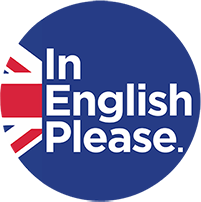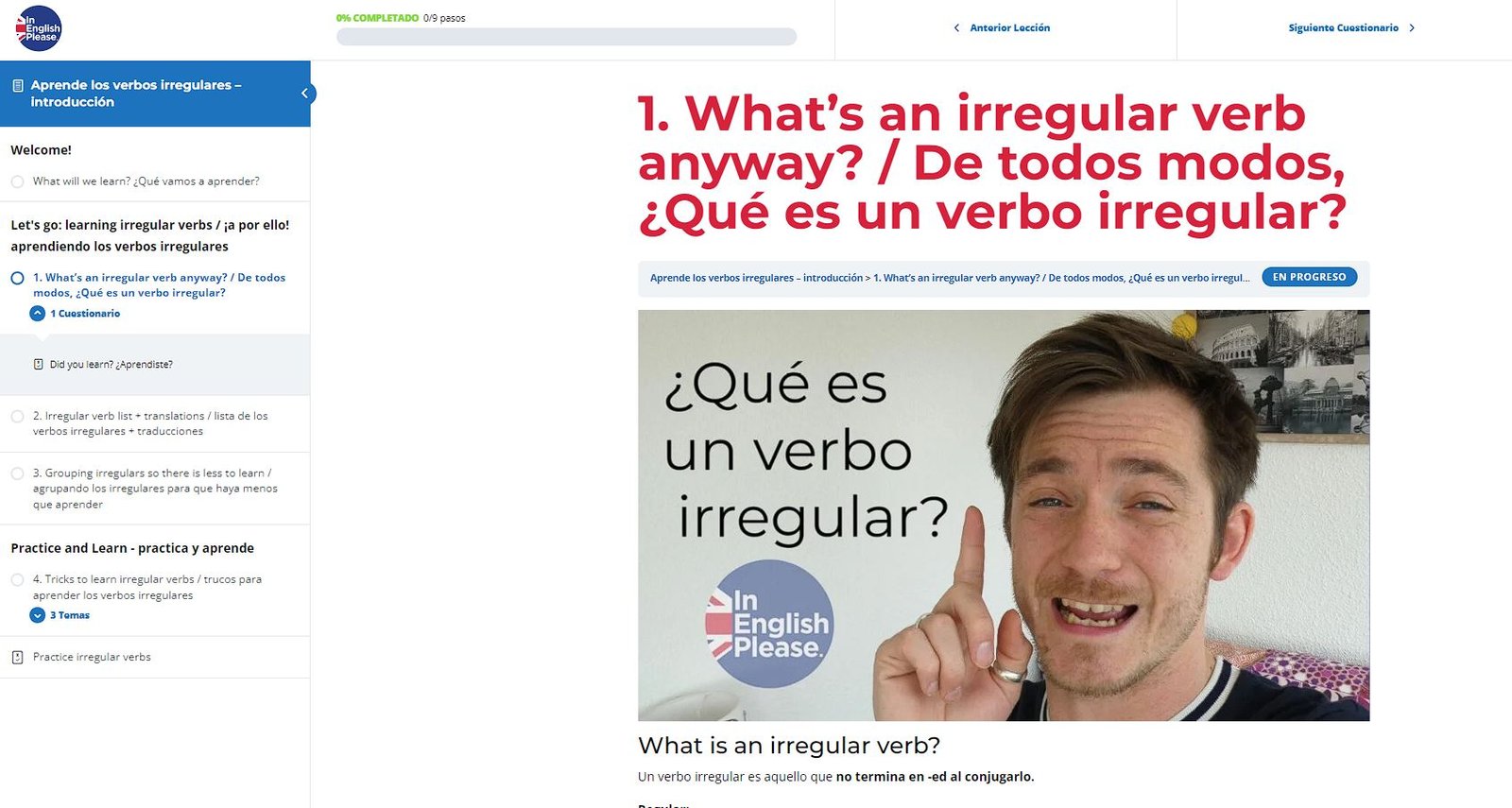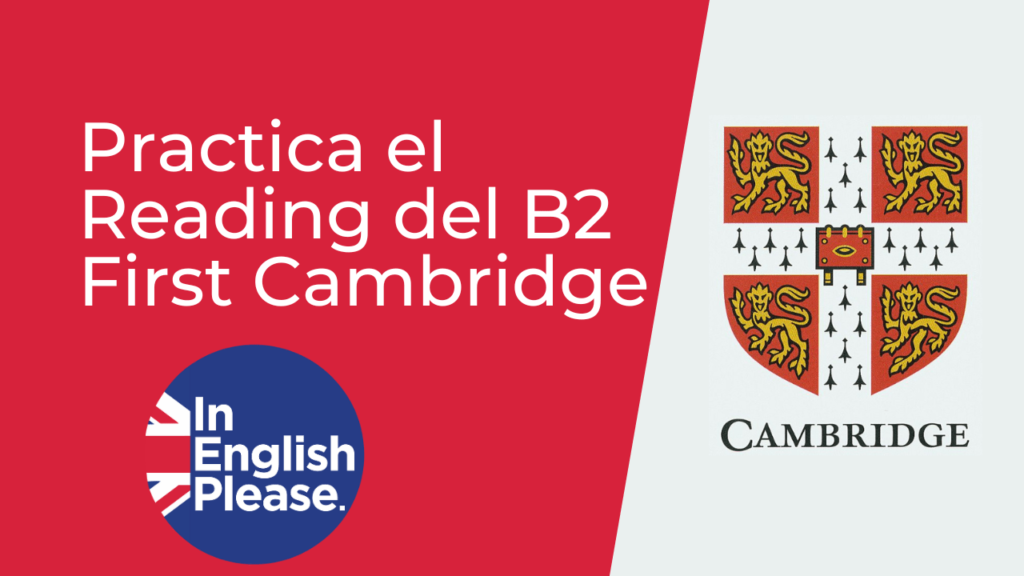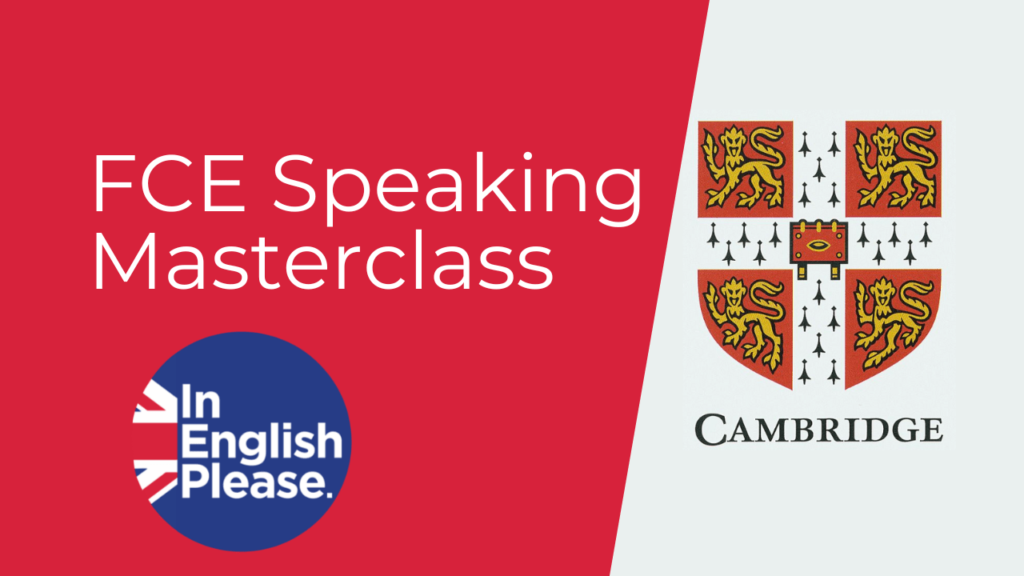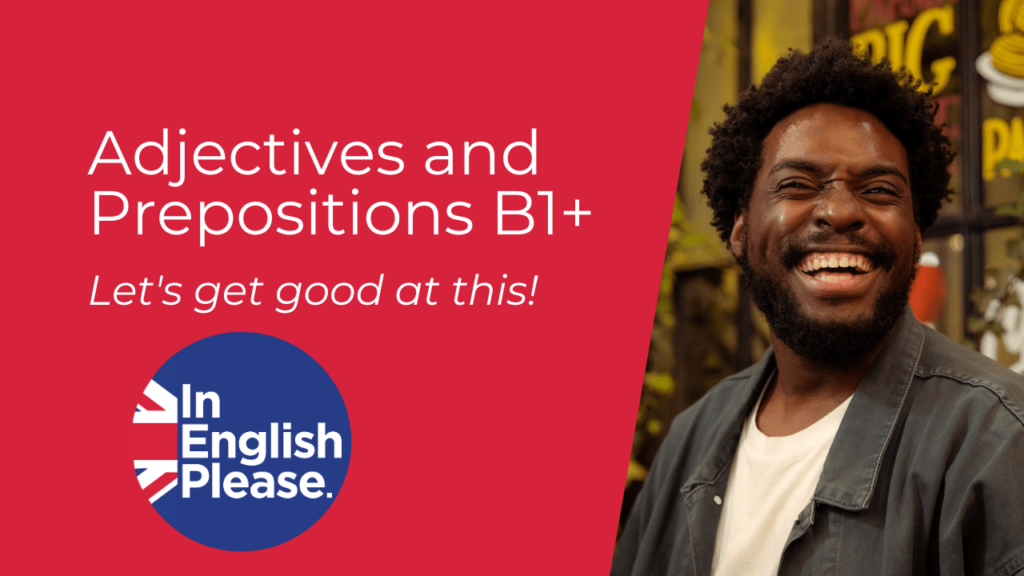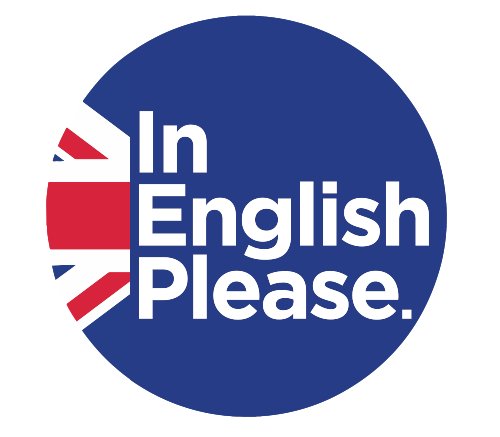
Repasa el pasado simple con este texto en inglés para principiantes
Hello there! Si estás empezando con el inglés o tienes un nivel básico, ¡perfecto! hemos preparado un texto en inglés para principiantes para que empieces a poner en práctica tu conocimiento, aprender nuevo vocabulario y sobre todo, hacemos hincapié en uno de tus tiempos verbales favoritos: el pasado simple, es decir, el past simple. Aprender el past simple con unos ejercicios te va a venir genial.
Para comenzar, aquí tienes una explicación del pasado simple (verbos regulares e irregulares). Esta explicación pertenece a nuestro curso de gramática A2 que nos parece fundamental para los que están comenzado con el inglés y que recomendamos fuertemente. Además al final de la explicación incluye ejercicios para que practiques.
En el texto en inglés vas a encontrar verbos en pasado simple de los dos tipos, regulares e irregulares. Te los presentamos aquí para que te familiarices con ellos antes de pasar a leer. Aquí tienes una lista de todos los verbos irregulares comunes.
| Regulares | Irregulares |
| Move – moved – moverse Miss – missed – extrañar Ask – asked – preguntar Look – looked – mirar Talk – talked – hablar Explain – explained – explicar Buy – bought – comprar Start – started – comenzar Like – liked – gustar |
Grow – grew – crecer Go – went – ir See – saw – ver Have – had – tener Be – was/were – ser/estar Meet – met – conocer/encontrarse con Think – thought – pensar Feel – felt – sentirse Buy – bought – comprar |
Nuestros cursos gratuitos para aprender los verbos irregulares:
Si los verbos irregulares te parecen incomprensibles, te entendemos, sabemos cómo te sientes. Por eso hemos creado un curso gratuito de introducción para los verbos irregulares en pasado, explica que son, como se hacen, como agruparlos (es que se pueden agrupar, del mismo modo que tostar y costar son similares, tueste y cueste, los verbos irregulares se pueden agrupar.)
Si ya los conoces, tenemos otro curso online gratis de verbos irregulares con ejercicios.
Texto en inglés para principiantes – Pasado simple
John’s journey in the countryside
John was a city boy, he grew up in a big city. But when his dad got a new job, the family moved to a small village in the countryside. He missed the noise, the lights, and the constant activity of the city. At first, he felt lonely and missed his old friends too.
During the weekend, John explored the area. He went into the forest and saw animals like cows, sheep, and chickens that lived on a farm. The farmer was Mr. Harris. Mr. Harris was not very tall, but strong, with a gray beard, large hands, and very friendly. He had a son and a daughter. John asked Mr. Harris about the names of the animals. They had tea, bread, and cheese together.
Then he said goodbye and continued his walk. He found a basketball court and there were some boys and girls playing basketball. He looked at them and said hello. The group of friends was curious about John. There were 4 boys and 2 girls. They talked about their hobbies and their school.
It was night time, and John had to go back home. He walked with a boy who lived nearby, Simon. Simon was a bit shy but very friendly. They made plans to play basketball on Wednesday.
John told his parents about his day. He explained that he saw animals, met Mr. Harris, a group of friends, and Simon. His parents were happy to hear that. They had dinner together and went to sleep.
The next day it was Sunday and they went to the town center. There was a local food market there. John liked cherries, so they bought some. Later, a street music group started playing. John was happy and thought he liked living there.
Ejercicios de comprensión
¡Genial! Ahora que ya has leído el texto en inglés, te propongo responder a estas preguntas de comprensión. Responde con frases completas, es decir:
How did John feel at first in the countryside?
❌ Lonely
How did John feel at first in the countryside?
✔️John/he felt lonely
- Where did John grow up?
- What did John miss about the city?
- What did John do during the weekend?
- What did John and Mr. Harris do together?
- What did John find after saying goodbye to Mr. Harris?
- What did John and the group of friends talk about?
- What did John and Simon plan to do?
- What did John and his parents do after dinner?
- What did they buy at the local food market?
- What happened next in the town center?
Si necesitas una ayuda extra para tu writing o para mejorar tu nivel de inglés, pregúntanos, Tenemos el profesor particular de inglés que necesitas.
Continúa tu aprendizaje con más material para leer en inglés y consejos para mejorar tus habilidades en inglés para aprender más deprisa.
By the way, no solo somos buenos profesores de inglés sino también somos buenos estudiantes de español. Si ves un fallo en nuestro articulo, abajo nos puedes dejar un comentario con la corrección y la revisamos.
Posts Relacionados
Practica las preposiciones en inglés: guía rápida con ejercicios
Preposiciones en inglés ¿cuáles son? Las preposiciones en inglés son palabras pequeñas pero poderosas que indican la relación entre diferentes elementos en una oración. Estas relaciones pueden referirse a lugar, tiempo, dirección, causa, medio o modo. Es cierto que al...
Aprende 3 modales en inglés B1: Should, Would y Could – ejercicios PDF
Aprende a usar los verbos modales en inglés B1 Hablar correctamente en inglés no solo se trata de aprender vocabulario y estructuras (pero si quieres aquí te dejo algunos artículos para refrescar este contenido como Ejercicios de sinónimos y antónimos en ingles –...
It is done: Ejemplos de pasiva en inglés B2 y C1 – Avanzado
Ejemplos de pasiva en inglés B2 En un nivel B2, pasar de activa a pasiva requiere un conocimiento de gramática más avanzado, así que hemos preparado ejemplos de pasiva en inglés B2, para que te hagas una idea. También te invitamos a que eches un vistazo a nuestro...
